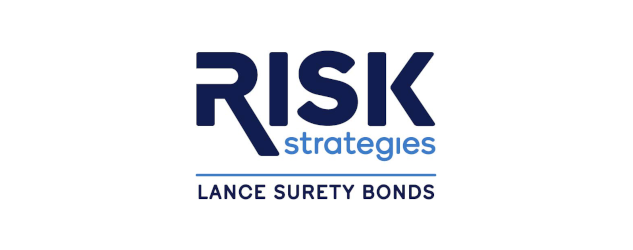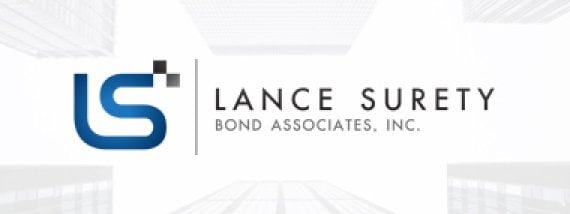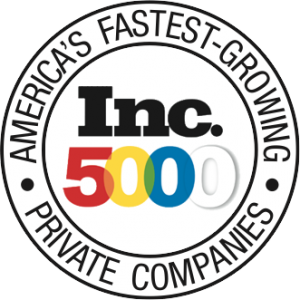How to Become a Freight Forwarder: A Step by Step Guide

To operate as a trucking or road freight forwarder in the United States, you must apply for Operating Authority from the Federal Motor Carrier Safety Administration (FMCSA). This authority is required to legally arrange the transportation of goods for shippers and ensure compliance with federal regulations. Your freight forwarder license will only be granted once all regulatory requirements are met.
The FMCSA offers two types of Freight Forwarder (FF) authority, depending on the nature of the cargo you intend to handle:
- Freight Forwarder of Property (except Household Goods) – Authorizes the arrangement of interstate transportation for general freight belonging to others, excluding household goods.
- Freight Forwarder of Household Goods – Grants the ability to arrange interstate transportation for household goods, unaccompanied baggage, or used automobiles on behalf of shippers.
Depending on your business operations, you must obtain one of these two types of authority. If your business plans to handle both general freight and household goods, you must apply for both authorities separately and pay a separate licensing fee for each.
Additionally, all freight forwarders must comply with FMCSA regulations, including proof of insurance (BMC-91/BMC-91X), a $75,000 surety bond or trust fund (BMC-84/BMC-85), and Process Agent Designation (BOC-3) before commencing operations. Failure to meet these requirements can result in denial or revocation of your freight forwarder license.
How to Become a Freight Forwarder
Step 1: Business Registration and Employer Identification Number (EIN)
To legally operate as a freight forwarder, you must establish your business as a recognized legal entity by registering with your state’s Secretary of State office. Choosing the right business structure is crucial, as it affects liability protection, taxation, and regulatory requirements. The common structures include:
- Sole Proprietorship – Easiest and least expensive to set up but offers no personal liability protection.
- Limited Liability Company (LLC) – Provides personal liability protection while allowing flexible taxation.
- Corporation (C-Corp or S-Corp) – More complex structure offering strong liability protection and potential tax benefits.
- Partnership – Suitable for businesses with multiple owners, but partners share financial and legal liability.
Obtain an Employer Identification Number (EIN) from the Internal Revenue Service (IRS) for tax purposes, which is required for filing taxes, opening a business bank account, and hiring employees. You can apply for an EIN online for free through the IRS EIN Application.
Step 2: Obtain a U.S. Department of Transportation (USDOT) Number
While freight forwarders do not always need a USDOT number, you must obtain one if your business will operate commercial motor vehicles (CMVs) to transport goods. A CMV is generally defined as a vehicle used in interstate commerce that meets any of the following criteria:
- Has a gross vehicle weight rating (GVWR) or gross combination weight rating (GCWR) of 10,001 lbs. or more.
- Is designed to transport more than 8 passengers (including the driver) for compensation.
- Is designed to transport more than 15 passengers, including the driver, without compensation.
- Is used to transport hazardous materials requiring placarding under DOT regulations.
Even if you do not operate CMVs, some states may require a USDOT number for intrastate operations, so check with your state’s transportation department.
You can apply for a USDOT number through the FMCSA’s Unified Registration System (URS): FMCSA Registration Portal
Step 3: Apply for Freight Forwarder Operating Authority (FF Number)
To legally operate as a freight forwarder, you must obtain an FF Number (Freight Forwarder Operating Authority) from the Federal Motor Carrier Safety Administration (FMCSA). This authorization allows you to arrange the transportation of goods for shippers and ensures compliance with federal regulations.
To apply, you must complete and submit Form OP-1(FF) through the FMCSA’s Unified Registration System (URS). The application is available exclusively online, as paper submissions are no longer accepted.
The application process requires payment of a $300 fee per type of Freight Forwarder authority. If you intend to operate under both Freight Forwarder of Property and Freight Forwarder of Household Goods authorities, you must submit a separate $300 fee for each.
Once your application and payment are submitted, FMCSA will review the details. Processing times vary but generally take several weeks.
Step 4: Obtain a Freight Forwarder Surety Bond (BMC-84) or Trust Fund (BMC-85)
To operate as a freight forwarder, you are required by the FMCSA to secure $75,000 in financial security to protect shippers and carriers from potential non-payment or contractual violations. You can fulfill this requirement through one of the following options:
Option 1: Surety Bond (BMC-84)
- A surety bond is a financial guarantee provided by a bonding company such as Lance Surety Bonds to ensure you fulfill your obligations.
- You must purchase a $75,000 surety bond from a licensed bonding or insurance provider.
- Instead of paying the full $75,000 upfront, you pay an annual premium based on your credit score and financial history.
- Premiums typically range from 1% to 10% of the bond amount, meaning you may pay $750 to $7,500 per year.
- If you fail to meet your contractual obligations, the bond provider covers the claim, and you must repay the bonding company.
Option 2: Trust Fund Agreement (BMC-85)
- Instead of purchasing a bond, you can deposit $75,000 in a trust fund as collateral.
- This deposit is held in a bank or financial institution, restricting access to these funds for other business purposes.
- Unlike a surety bond, this option does not require annual payments, but it ties up your capital.
- If a claim is made against your business, the funds will be used to cover the claim.
Filing Requirements
- Whether you choose the BMC-84 Surety Bond or BMC-85 Trust Fund, your bond or trust provider must submit the necessary documentation directly to the FMCSA on your behalf.
- The bond or trust must remain active at all times—if it lapses, your operating authority may be revoked.
Choosing between the BMC-84 bond and BMC-85 trust fund depends on your business’s financial situation. If you prefer lower upfront costs, a surety bond is the best option. However, if you have ample capital and prefer to avoid ongoing premiums, the trust fund may be a better choice.
Step 5: Obtain a Process Agent (BOC-3 Filing)
A process agent is a designated legal representative responsible for receiving legal documents, such as court papers or regulatory notices, on behalf of your business in each state where you operate. This ensures that your company remains compliant with federal and state regulations. Every freight forwarder is required to have a process agent in all states where they conduct business.
To fulfill this requirement, you must file Form BOC-3 (Designation of Process Agents) with the FMCSA. This form officially designates the agents who will accept legal documents on your behalf. Only a registered FMCSA process agent or an approved process service company can submit this form. Self-filing is not permitted unless you are appointing agents for every state individually.
You can find registered process agents through FMCSA-approved service providers, many of which offer nationwide coverage for a single fee. Once the BOC-3 form is submitted and processed, your Freight Forwarder Operating Authority (FF Number) will become active, provided all other requirements (such as insurance and bonding) have also been met.
Step 6: Obtain and File Proof of Insurance (BMC-91/BMC-91X)
Before a freight forwarder can legally operate, the FMCSA requires proof of insurance to protect shippers, carriers, and the public from potential damages, losses, or liabilities. The required insurance must be obtained from a licensed provider and filed with the FMCSA before your Operating Authority becomes active.
Types of Required Insurance
- Cargo Insurance (Form BMC-34 or BMC-83, depending on coverage type):
- Minimum coverage:
- $5,000 per vehicle
- $10,000 per incident
- Covers damage or loss of goods while in transit under your responsibility.
- Minimum coverage:
- Liability Insurance (Form BMC-91 or BMC-91X):
- Coverage depends on the type of freight transported:
- $750,000 to $5 million – Required for general freight (varies by commodity, with hazardous materials requiring higher limits).
- $300,000 – Required for non-hazardous freight transported in vehicles weighing 10,000 lbs or less.
- Covers bodily injury, property damage, and environmental restoration costs in case of an accident involving your operations.
- Coverage depends on the type of freight transported:
How to File Proof of Insurance
Your insurance provider is responsible for filing the necessary forms directly with the FMCSA, as freight forwarders cannot submit them on their own. If your insurance policy covers only one state, your provider must file Form BMC-91. However, if your policy extends across multiple states or involves multiple insurers, Form BMC-91X must be submitted instead.
The FMCSA strictly requires that these forms be filed by licensed insurance companies, ensuring that all freight forwarders meet the necessary liability and cargo coverage requirements before their operating authority is activated.
Step 7: Wait for FMCSA Review and Approval
Once you have submitted all the required filings:
- Freight Forwarder Surety Bond (BMC-84) or Trust Fund Agreement (BMC-85)
- Proof of insurance (BMC-91/BMC-91X)
- Process Agent Designation (BOC-3)
The FMCSA will review your application before granting operating authority. Your freight forwarder license will only be approved once all these requirements are met. The review process typically takes 4-6 weeks, but the exact timeline depends on application volume and the accuracy of your submissions. Any missing or incorrectly filed documents may result in delays or rejection. To track your application status, you can use the FMCSA’s Licensing and Insurance (L&I).
If your application is approved, FMCSA will issue your Freight Forwarder Operating Authority (FF Number). Your authority will only become active once all requirements are met and the granted authority is published in the FMCSA Register. Upon approval, you will receive an official confirmation letter from FMCSA along with an operating certificate, allowing you to legally operate as a freight forwarder.
License Expiration and Renewal
Unlike with other business license types, freight forwarder licenses do not expire yearly. Instead, what you must do is make sure that you update your records with the FMCSA anytime there are changes in your operations. Such changes may include your name, address or changes to the status of your authority.
While you do not need to renew your license, you are required to update your information every two years, even if no changes to your information have occurred. This is part of the biennial update requirement and there are fines associated with failing to do so.
You must also renew your freight forwarder bond yearly no later than 30 days prior to its expiration! You will be notified by the surety well in advance that your bond is about to expire.
Do you have any questions about the bonding requirements for freight forwarders? Call us at 877.514.5146 anytime to speak to one of our experts!If, apart from becoming a freight forwarder, you also want to become a freight broker, make sure to see our ultimate guide on How to Become a Freight Broker!
FAQs on How to Become a Freight Forwarder
How much does a freight forwarder license cost?
The cost of obtaining a freight forwarder license includes several fees:
- FMCSA application fee: $300 per authority type (Freight Forwarder of Property or Freight Forwarder of Household Goods).
- Surety bond (BMC-84) or trust fund (BMC-85): $75,000 (bond premiums range from $750–$7,500 per year).
- Liability and cargo insurance: Costs vary based on provider and coverage.
- BOC-3 process agent filing: Typically $50–$150.
- Business registration fees: Varies by state.
What is the Difference Between a Freight Forwarder and a Freight Broker?
A freight forwarder handles cargo storage, consolidation, documentation, and shipment arrangements, and may take possession of freight. A freight broker only arranges transportation between shippers and carriers but does not handle cargo directly.
Can I Operate as Both a Freight Forwarder and a Freight Broker?
Yes, but you must apply for both FMCSA authorities separately—an FF Number for freight forwarding and an MC Number for freight brokerage. Each requires its own application, bond, and insurance.
Can I Use My Freight Forwarder License in All States?
Yes, FMCSA authority allows nationwide operations, but some states may require additional business licenses or tax registrations if you have a physical presence or conduct significant business within that state.
What Type of Education Is Needed to Become a Freight Forwarder?
No specific degree is required, but a background in logistics, supply chain management, business, or international trade can be beneficial. Industry certifications, such as the FIATA Diploma in Freight Forwarding or Certified International Freight Forwarder (CIFF), can also enhance credibility.
Can a Freight Forwarder Arrange International Shipments?
Yes, freight forwarders can arrange international shipments, but you may need:
- Federal Maritime Commission (FMC) License – Required for handling ocean freight.
- International Air Transport Association (IATA) Accreditation – Required for arranging air cargo.
- Customs Broker Partnership – If handling import/export documentation.
Get a FREE Surety Bond Quote in Minutes
- Fast and Secure Application
- Money Back Guarantee
- Approval in Minutes
- Nationwide Coverage
Recommended Articles
- Fast and Secure Application
- Nationwide Coverage
- Approval in Minutes
- Money Back Guarantee
- Image

- Image

- Image

Lance Surety Bond Associates, Inc. is a surety bond agency based out of southeastern Pennsylvania that is able to write all surety bond types in all 50 states. We are dedicated to servicing all of our customers' surety bonding needs throughout the country and guarantee competitive rates, timely responses, and unparalleled customer service.








